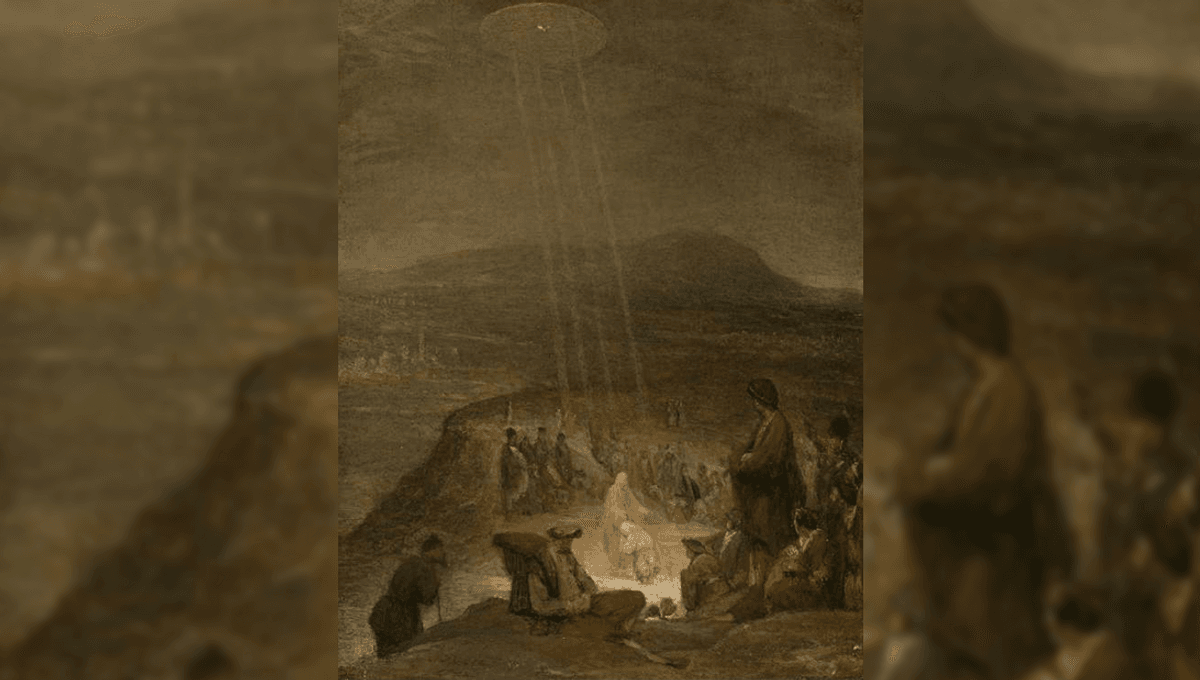
Reports of strange lights or other objects in the sky have occurred for thousands of years, some of which modern minds might call unidentified flying objects (UFOs).
Early references to unusual events come from between 223 to 91 BCE, with Greek and Roman accounts describing “sky fire”, “chasms”, and “night suns” in the sky. Looking at these accounts, they lined up neatly with 11-year aurora cycles, likely explaining what they had seen. Other accounts from 218 BCE to 65 CE talk of round shields (likely bolides) and “flaming spears” streaking across the sky, or “ships” in the sky, perhaps the result of a cloud or a mirage.
In all these accounts, likely describing meteorites, birds, or other natural phenomena, none talk about the events in terms of aliens. So did they have the concept of life possibly existing on other planets, and when did it first appear?
In the fifth century BCE, philosophers Leucippus and Democritus came up with atomism, the idea that the universe is made of tiny, indivisible parts, swirling around and clumping together to form objects and worlds. As Democritus believed there was an infinite supply of these atoms, he speculated that there was an infinite number of worlds.
“It seems absurd, that in a large field only one stalk should grow,” his student Metrodorus of Chios wrote, “and that in an infinite space only one world exist.”
As the Roman poet Lucretius later put it: “Nothing in the universe is unique and alone and therefore in other regions there must be other earths inhabited by different tribes of men and breeds of beasts.”
While this may sound surprisingly modern as a view, as amateur historian Tim O’Neill points out, Democritus was living in a time before we realized the stars were other suns, and these “other earths” were not seen to occupy the sky. They were instead somehow beyond our world, in a similar way to parallel universes in more modern theories.
Aristotelian philosophy rejected the idea of many worlds, while religion also stifled any scientific ideas that didn’t paint God as anything but all-powerful. Then in 1439-40, Nicholas of Cusa wrote an influential book, containing this idea.
“Life, as it exists on Earth in the form of men, animals and plants, is to be found, let us suppose in a high form in the solar and stellar regions. Rather than think that so many stars and parts of the heavens are uninhabited and that this earth of ours alone is peopled – and that with beings perhaps of an inferior type – we will suppose that in every region there are inhabitants, differing in nature by rank and all owing their origin to God, who is the center and circumference of all stellar regions,” he wrote.
“Of the inhabitants then of worlds other than our own we can know still less having no standards by which to appraise them. It may be conjectured that in the area of the sun there exist solar beings, bright and enlightened denizens, and by nature more spiritual than such as may inhabit the moon. … [W]hilst those on earth are more gross and material.”
It was likely the first reference to the idea of aliens living on other worlds out there in the cosmos. Now where the hell are they?
Source Link: When Did Humans First Start Thinking About Aliens?